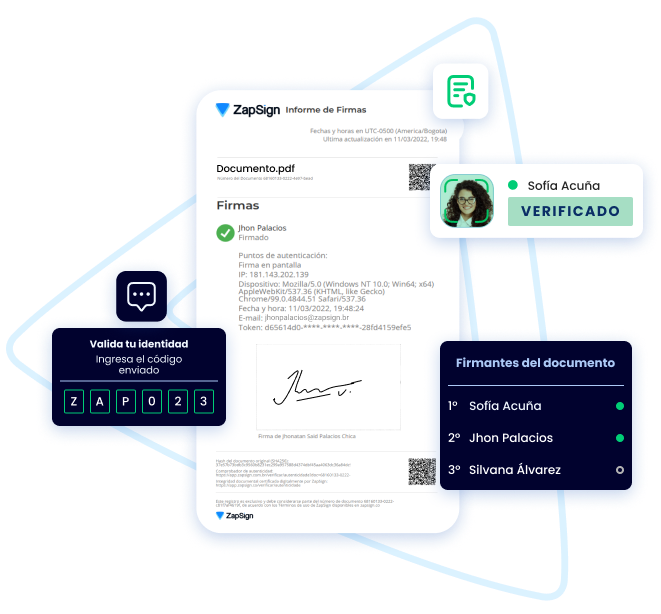Legality Guide

Legal Disclaimer: ZapSign cannot provide legal advice. You should consult a lawyer regarding your legal issues. Laws and regulations change frequently, and this information may not be up-to-date or accurate.
The electronic signature has legal validity, but its regulation depends on each country. The information on this page is intended to help users understand the legal framework of electronic signatures. In general, the signature must allow the signer to be identified and ensure that the document was not modified after the signature.
ZapSign captures different authentication data from the signer, in addition to the on-screen signature, such as IP address, date and time of signature, geolocation, device information, and browser information. Additionally, security can be enhanced by adding authentication points such as email or cellphone verification through OTP, face photo, document photo, and/or facial recognition.
The document's integrity is guaranteed by the SHA256 algorithm, a cryptographic hash function created by the NSA, which identifies any alteration made to the original document.
The electronic signature can be used in virtually all private documents, such as contracts, proposals, agreements, loans, and records, among others.




